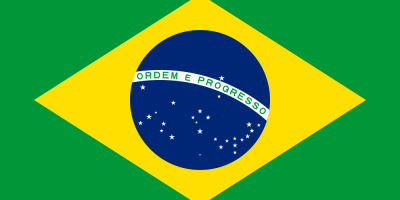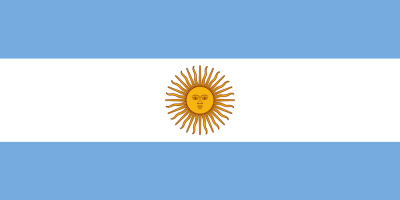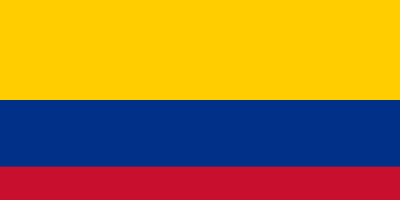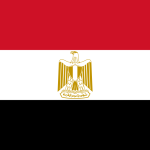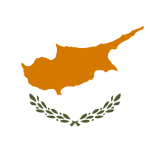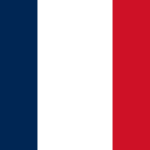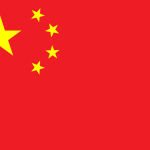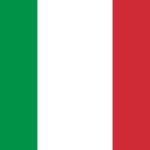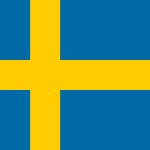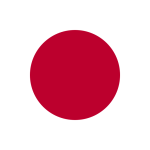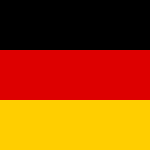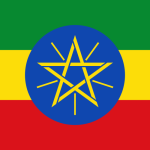Paraguayan flag color codes is beloved by the country’s citizens as a symbol of national pride. If you want to accurately recreate the colors of the Paraguay flag for a digital design or art project, knowing the precise color codes is key. This article will provide the HTML HEX, RGB, PANTONE, HSL, CMYK, HWB, and NCOL values for the red, white, and blue tones present on the flag of Paraguay. With this comprehensive reference for the Paraguay flag color codes, you can match the colors perfectly when incorporating the iconic national colors into websites, apps, print materials, and more. Read on to get the exact specifications for the red, blue, and white hues that comprise the tri-band Paraguayan flag.
Table of Contents
What are the colors of Paraguay flag?
The colors of the Paraguay flag are:
- Red – Represents courage, heroism, and the blood spilled for independence. Specifically Pantone 186 C, RGB(206, 17, 38), HEX #CE1126.
- White – Represents peace, purity, and honesty.
- Blue – Represents justice, loyalty, and vigilance. Specifically Pantone 286 C, RGB(0, 56, 144), HEX #003890.
The flag consists of three equal horizontal bands of red, white, and blue with the national coat of arms centered on the white band.
The red symbolizes the courage and sacrifices made during the Paraguayan War of Independence. The white represents peace and purity of intent. The blue represents justice and loyalty to the nation. Together the vibrant red, white, and blue reflect Paraguay’s national virtues and ideals.
Paraguay flag color codes & Color Names:
RED
| Color Model | Value |
|---|---|
| HTML | #FFD100 |
| HEX | FFD100 |
| RGB | 255, 177, 0 |
| PANTONE | 123 C |
| HSL | 43.2°, 100%, 50% |
| CMYK | 0%, 31%, 100%, 0% |
| HWB | 43.2°, 0%, 0% |
| NCOL | Red-Yellow |
WHITE
| Color Model | Value |
|---|---|
| HTML | #FFFFFF |
| HEX | FFFFFF |
| RGB | 255, 255, 255 |
| PANTONE | N/A |
| HSL | 0°, 0%, 100% |
| CMYK | 0%, 0%, 0%, 0% |
| HWB | 0°, 100%, 0% |
| NCOL | White |
BLUE
| Color Model | Value |
|---|---|
| HTML | #0033A0 |
| HEX | 0033A0 |
| RGB | 0, 51, 160 |
| PANTONE | 287 C |
| HSL | 216°, 100%, 31.4% |
| CMYK | 100%, 91%, 0%, 37% |
| HWB | 216°, 0%, 37.3% |
| NCOL | Blue-Blue |
What is the meaning of colors in the Paraguay flag?
The colors of the Paraguay flag hold symbolic meaning:
- Red – This represents the blood spilled and sacrifice made by Paraguayans during the fight for independence from Spain and later during the Paraguayan War. Red signifies courage, heroism, and the pursuit of liberty.
- White – The white band represents peace, purity, sincerity, and integrity. It demonstrates Paraguay’s commitment to justice, goodness, and transparency as a nation.
- Blue – The blue stripe embodies vigilance, loyalty, and justice. It reflects Paraguay’s desire for order, unity, and fair governance that serves all citizens.
- Coat of Arms – The emblem centered on the white band contains iconic national symbols that encapsulate Paraguay’s history and values.
In summary, the meanings behind the colors are:
- Red: Courage, sacrifice, liberty
- White: Peace, purity, sincerity
- Blue: Loyalty, justice, unity
The bold triband design creates a vibrant flag that resonates with themes of honor, justice, and national pride for the people of Paraguay.
Explore More Flag Colors:
FAQs: Frequently Asked Questions:
Is Paraguay a rich or poor country?
Paraguay is generally considered a lower-middle-income country. The classification of a country as “rich” or “poor” can vary depending on the criteria and metrics used. Paraguay faces challenges such as income inequality, poverty, and limited access to education and healthcare in certain areas.
The country’s economy relies on agriculture, hydroelectric power generation, and trade. While Paraguay has experienced economic growth and stability in recent years, there are disparities in wealth distribution, and a significant portion of the population faces economic challenges.
Do you need a visa for Paraguay?
citizens from some countries are exempt from obtaining a visa for short stays, while others may need a visa in advance.
For citizens of many countries, including those from the European Union, the United States, Canada, and many South American countries, a visa may not be required for short visits (usually up to 90 days). However, it’s crucial to check the specific visa requirements based on your nationality and the purpose of your trip.
Why is Paraguay famous?
Paraguay is known for several aspects that contribute to its fame, including:
Iguaçu Falls: While the majority of Iguaçu Falls is situated in Brazil and Argentina, the river forming the falls, the Paraná River, has its origin in the hills of eastern Paraguay. The falls are one of the most spectacular natural wonders in the world.
Itaipu Dam: The Itaipu Dam, located on the Paraná River on the border between Paraguay and Brazil, is one of the largest hydroelectric power plants in the world. It plays a crucial role in providing electricity to both Paraguay and Brazil.
Mate Tea: Paraguay is a significant producer and consumer of mate tea, a traditional South American drink made from the leaves of the yerba mate plant. The culture of sharing mate is deeply ingrained in Paraguayan society.
Cultural Heritage: Paraguay has a rich cultural heritage influenced by its indigenous Guarani roots and Spanish colonial history. Traditional Paraguayan music, dance, and crafts are integral parts of the country’s identity.
Chaco Region: The Gran Chaco, a vast and largely unexplored region, is known for its unique ecosystems and wildlife. It is one of the largest wilderness areas in South America.
What type of country is Paraguay?
Paraguay is a landlocked country located in the heart of South America. Here are some key characteristics that describe the type of country Paraguay is:
Landlocked: Paraguay is the only landlocked country in South America, surrounded by Argentina to the south and southwest, Brazil to the east and northeast, and Bolivia to the northwest.
Bilingual and Bicultural: Paraguay is known for its bilingual and bicultural identity, with both Spanish and Guarani recognized as official languages. The Guarani culture, with its indigenous roots, has had a significant influence on the country’s traditions.
Democratic Republic: Paraguay operates as a democratic republic. It has a system of government with a president as the head of state and head of government, along with a multi-party political system.
Economic Activities: Paraguay has an economy that relies on agriculture, hydroelectric power generation, and trade. The agricultural sector is a key contributor to the country’s GDP, with crops such as soybeans, corn, and wheat being significant.
Natural Wonders: Paraguay is home to various natural wonders, including the Paraná River, the Iguaçu Falls (partially located in Paraguay), and the Gran Chaco, which is a vast and diverse region with unique ecosystems.
Hydroelectric Power: The Itaipu Dam, located on the Paraná River on the border between Paraguay and Brazil, is one of the largest hydroelectric power plants in the world. It plays a crucial role in providing electricity to both Paraguay and Brazil.
Cultural Heritage: Paraguay has a rich cultural heritage that reflects its indigenous Guarani roots and its history of Spanish colonization. Traditional music, dance, and crafts are integral parts of the country’s cultural identity.
Yerba Mate Production: Yerba mate, a traditional South American drink, is a significant part of Paraguay’s culture and economy. The country is a major producer and consumer of yerba mate.
Is Paraguay a safe country?
Paraguay is generally considered a safe country for tourists and travelers. However, like any destination, it’s essential to be aware of local conditions, take common-sense precautions, and stay informed about safety concerns.
Here are some considerations regarding safety in Paraguay:
Crime: While Paraguay has lower crime rates compared to some other countries in the region, petty crime such as pickpocketing and street crime can still occur, especially in urban areas. Travelers should be cautious in crowded places and tourist areas.
Regions: Safety conditions can vary between regions. Urban areas, including Asunción (the capital), might have different safety considerations compared to rural areas. It’s advisable to stay informed about the specific safety conditions of the places you plan to visit.
Travel Advisories: It’s always a good idea to check the latest travel advisories and updates from your government before traveling to Paraguay. Governments provide valuable information about safety and security concerns.
Health Precautions: Like in many countries, travelers to Paraguay should take health precautions. Ensure vaccinations are up-to-date, practice good hygiene, and take measures to prevent food and waterborne illnesses.
Is Paraguay a cheap place to live?
Paraguay is often considered a relatively affordable place to live, especially when compared to many countries in North America, Europe, and other regions with higher costs of living. However, the affordability of living in Paraguay can vary depending on factors such as lifestyle, location within the country, and personal spending habits.
Here are some factors that contribute to Paraguay being perceived as a relatively affordable place to live:
Cost of Housing: Rent and real estate prices in Paraguay are often lower than in many developed countries. Living in smaller towns or rural areas can further reduce housing costs.
Food Costs: The cost of food, especially locally produced items, can be relatively low. Traditional markets and street vendors often offer affordable options.
Transportation: Public transportation, such as buses, is generally affordable in Paraguay. Owning and maintaining a vehicle may be more cost-effective compared to some other countries.
Utilities and Services: Basic utilities, including electricity, water, and internet, are often reasonably priced. Healthcare costs can also be lower compared to some Western countries.
Currency Exchange Rates: The cost of living in Paraguay may be influenced by currency exchange rates, particularly for expatriates or individuals receiving income in a foreign currency.
Is it easy to immigrate to Paraguay?
Here are some general points to consider:
Tourist Visas: Citizens from many countries do not need a visa for short visits (usually up to 90 days) for tourism purposes. However, the specific visa requirements can vary, and it’s essential to check the latest information from official sources or the nearest Paraguayan embassy or consulate.
Residency: If you plan to stay in Paraguay for an extended period, you may need to apply for a residency visa. There are different types of residency visas, such as temporary residency and permanent residency, each with its own set of requirements.
Investor and Retirement Visas: Paraguay offers residency options for investors and retirees. These programs may have specific financial and other eligibility criteria that applicants need to meet.
Work Visas: If you plan to work in Paraguay, you may need a work visa. Employers often play a role in the application process for work-related visas.
Documentation: Typically, the immigration process requires various documents, such as a valid passport, proof of funds, criminal background checks, and other specific documents depending on the type of visa.
Legal Assistance: Some individuals find it helpful to seek legal assistance or advice when navigating the immigration process in a new country. Immigration laws and requirements can change, so it’s crucial to have accurate and up-to-date information.

